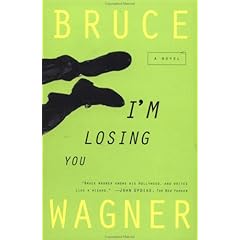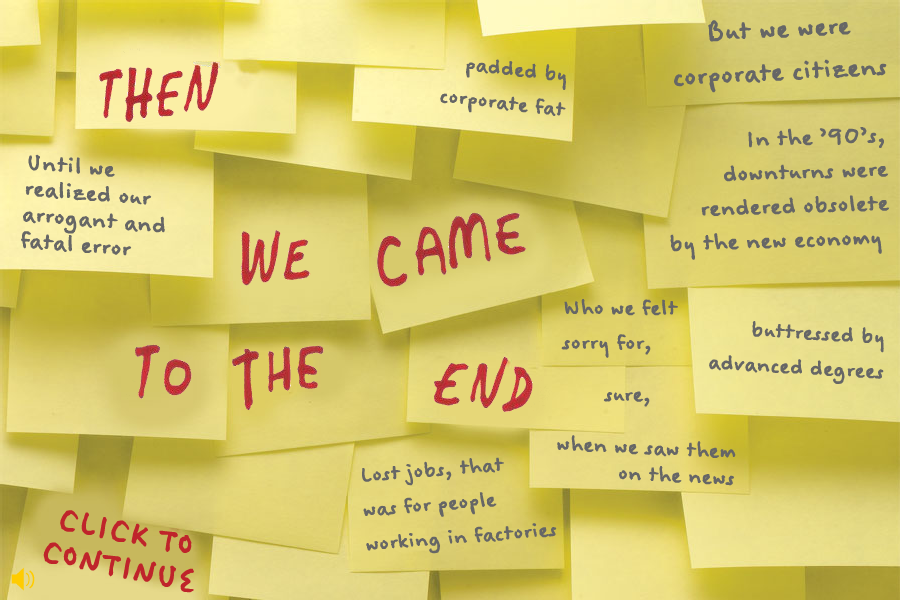I don’t like walking around with a chair on my head. If given the choice, I’d prefer not to crazily wave my arms around and make animal noises. If you ask me to do an interpretative dance about a flower rising from the ground, I might just stand there, staring at the floor, wishing I could disappear.
So then what was I doing in an acting class? I’d always considered myself a “serious” writer and filmmaker, someone who could weave words or bits of film together into a seamless whole, so imagine how naked I felt when I had to leave those props behind in a special acting class for film students at NYU called “the Actor’s Craft”? I know I was completely out of my element with the improv games and the yodeling contests until the teacher asked us each to bring in a story. We were to perform a monologue about our “defining moment.” This, I could handle. I was a serious writer, after all.
I thought about one particular moment when I was ten years old, and I really wanted to play basketball. I thought about what I found when I showed up at the first day of practice at the City Civic Center Youth league: seven boys and the coach staring back at me as I entered the gym. I barely knew the difference between a point guard and a forward, except that one of them was supposed to be in the front, and suddenly I found myself in a group of boys who seemed to have basketball hardwired to their brains. I wasn’t sure which was more intimidating, running with these guys during games, desperately trying to find a footing, or afterwards, when I would head off by myself to the decrepit and disused women’s locker room. I remembered leaving that silent and empty space, going home and begging my parents to let me quit. They reminded me that I was the one who signed up, and so I would have to follow through with my intentions and play out the entire season.
It was this last part that I focused on in my presentation to Actor’s Craft. I skimmed over the misery and told the class about how the experience had defined my sense of determination. Every good story needs a driving theme, and I was sure that mine had one, something important about perseverance in the face of a challenge, stick-to-it-tiveness, never-give-up-and-you-can-achieve-anything-ness. Because if this story were a TV movie, could it end with anything other than this brash ten-year-old misfit sinking the game-winning three-pointer? Good stories demand creative license, drama, and by God, that was something I was prepared to deliver.
The teacher of Actor’s Craft didn’t ask for the TV movie version, though she did want us to use our defining moments for something that might demand a little creativity. She was going to assign each of us a partner, and we would meld our “defining moments” into something new and improvisatory. The details of the assignment grew hazy as I realized that I was to be paired up with my secret class crush: a brilliant flame-haired film student named Mike. I decided that I could learn to like this improv thing. The beauty of the actor’s craft was opening up to me, now that I could use it finesse a romantic subplot into the mix.
I went over to his dorm one night after class. I ignored the Grateful Dead he had playing in the background—I wasn’t going to let it spoil the mood as both of us circled in on each other’s “defining moments”. His was suitably grand and cinematic: he remembered watching the aurora borealis from the top of some mountain in Canada that he had hiked to with a Deadhead pal of his. Mike had been absent the day of my basketball monologue, so I told him the whole story.
I could see him thinking about it, as Jerry and the gang grooved on behind us. “I know it might be hard for you to relate to being the lone girl on all-boys basketball team. But really, it’s a story about . . .” I began. I could see that now was the time for self-revelation. And I decided to give him the real, unvarnished me, and not the TV movie version. “It’s a story about being . . . an outsider,” I finally said.
He thought about it, really tried to delve into his mental files of experience. For Mike was a “method” man; besides being a talented filmmaker, he had this acting thing down pat. He had no problem walking around with a chair on his head.
He scrunched up his face and frowned. “It’s just that—“ he began. “It’s just that I don’t think I’ve ever experienced that.”
I looked into his bright green eyes and they just didn’t seem as compelling. I was prepared to overlook the Grateful Dead thing, the tie-dyed shirts, the fact that he was just a touch, okay, maybe a lot shorter than me. But this? He had never felt like an outsider? My crush burned away like the cone of incense he had stationed on his tapestry-covered dresser. I could see now that we would never unite.
Still, our stories had to. “That’s okay,” I said. “Because, you know, it can be looked at in a different way, as a story about . . . perseverance.”
“Perseverance . . . okay,” he repeated. “So what about we’re both playing basketball, but we’re like really
committed to the game, only the aurora borealis is up in the sky above us,
while we’re playing . . .”
There’s always room for revision. An inept ten-year-old basketball player had gotten cut and so had my budding infatuation, but Mike still held out the promise of a happy ending. And as our newly minted universe lit up and took a life of its own, it was a small consolation but a real one: two happy hippies playing basketball with dogged determination while the Aurora Borealis glittered above them, the offspring of a union that was never meant to be.
 It's unfortunate when you are the second book to write about layoffs and office life in the first-person plural. Man, would that suck, but such is the zeitgeist. I'm trying to write about fictionalized office life, so I'm interested in books that do it well. Because working is boring, writing about work is boring. When a writer captures the mundane and stifling in a fresh, even inspiring way, it's a truly remarkable accomplishment. When books about work take off, I think it's through capturing some kind of idiosyncratic singularity (like Ferris's book or the underrated Big If by Marc Costello) or the workplaces is a kind of accessory to the an overall commentary they are making to American culture (Palladio).
It's unfortunate when you are the second book to write about layoffs and office life in the first-person plural. Man, would that suck, but such is the zeitgeist. I'm trying to write about fictionalized office life, so I'm interested in books that do it well. Because working is boring, writing about work is boring. When a writer captures the mundane and stifling in a fresh, even inspiring way, it's a truly remarkable accomplishment. When books about work take off, I think it's through capturing some kind of idiosyncratic singularity (like Ferris's book or the underrated Big If by Marc Costello) or the workplaces is a kind of accessory to the an overall commentary they are making to American culture (Palladio).







